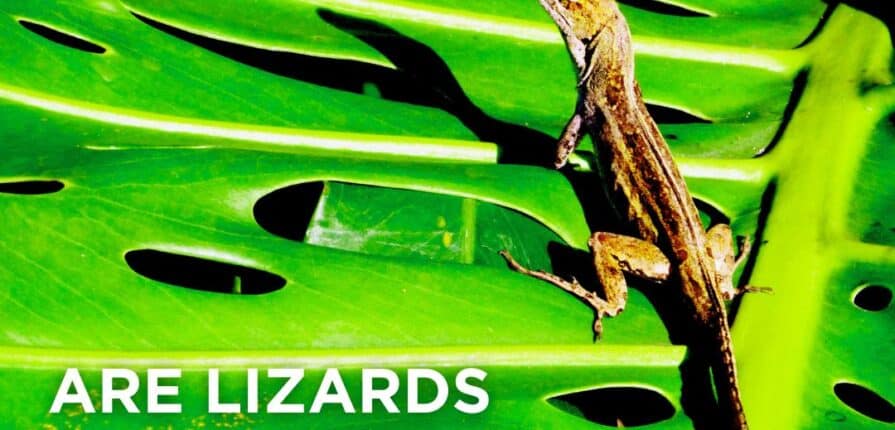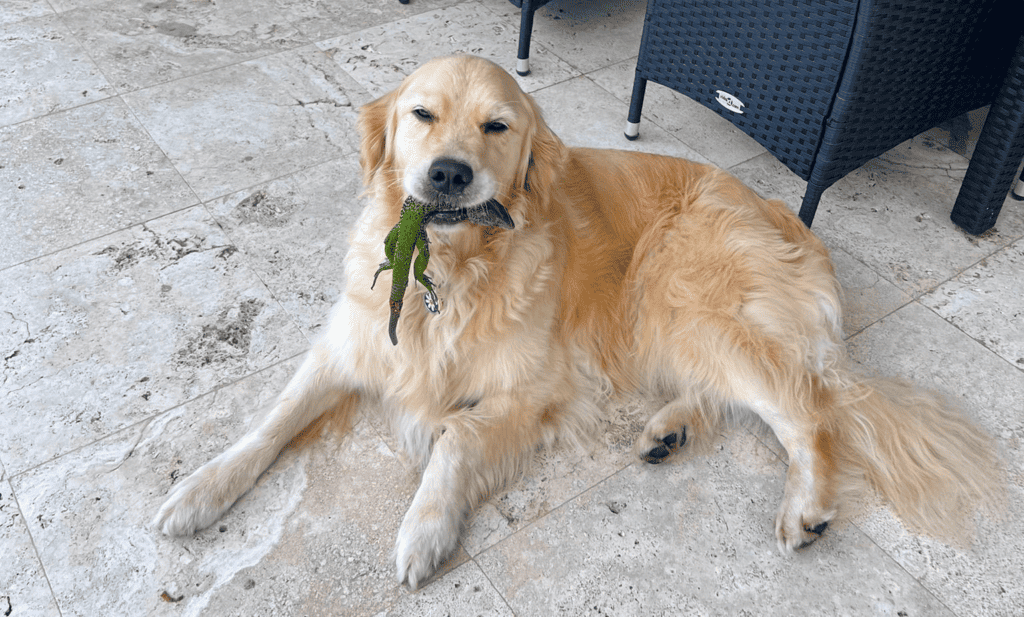The Lizard Hunt: What Pet Owners in Miami Need to Know
Are lizards dangerous to dogs and cats? In South Florida’s vibrant ecosystem, it’s not uncommon for our furry friends to encounter interesting creatures, including lizards. While the thrill of the chase might be fun for them, there are potential health risks involved when and if they catch them. Here’s what every pet owner should know about dogs and cats catching lizards.
The Lizard-Hunting Champions
We have some top-notch lizard hunters among our dog-walking clients. Beignet, the Golden Retriever, boasts an undefeated record, while Luna, the Husky, recently nabbed a massive grandfather iguana in her backyard. Fortunately, neither of them consumed their catch. It’s worth noting that while lizards aren’t poisonous, unlike Bufo Toads, we always advise against letting pets play with them.
The Risks for Cats when Catching Lizards
Cats, in particular, face a greater risk. Geckos and anoles, common types of lizards in Miami, can carry liver flukes, a parasite known as Platynosomum fastosum. If a cat consumes an anole, it could contract these liver flukes, which are detrimental to their health. According to Dr. Pendergrass: “After the infected lizard is eaten, the fluke will travel to a cat’s liver, gall bladder, and bile ducts and mature over about 8 to 12 weeks. A mature fluke can cause major problems, including fatal liver inflammation. Liver flukes can also block the bile duct, leading to a toxic buildup of bile in the liver.” As a preventive measure, it’s best to keep cats away from lizards whenever possible. Liver flukes, in addition to other threats, are one of the reasons we always advocate for keeping your cat indoors. Indoor cats live longer, healthier lives and you’re able to control what they consume. Read more about cats and liver flukes here.
Potential Health Concerns
While most North American lizards are non-toxic, they can be carriers of salmonella. Although not every pet that eats a lizard will fall ill, it’s essential to be aware of the symptoms of salmonella poisoning:
- Vomiting or diarrhea
- Appetite loss
- Lethargy
- Swollen lymph nodes
- Shock
- Rapid heart rate
The Unknown Factor: Non-Native Lizards
South Florida’s ecosystem is ever-evolving, with new lizard species being introduced regularly. The toxicity of these non-native species is often unknown. If your pet happens to catch one of these unfamiliar lizards, it’s crucial to monitor them for signs of toxicity:
- Excessive drooling or foaming at the mouth
- Excessive thirst
- Weakness or lethargy
- Loss of appetite
- Vomiting and/or diarrhea
- Pale or yellow gums
- Nervousness or hyperactivity
- Muscle tremors or seizures
- Crossed eyes
- Erratic movement or walking
Remember to Steer Clear of Bufo Toads
We always like to mention that pet parents in South Florida need to be on the lookout for Bufo Toads, especially where their dogs are concerned. Always monitor your dogs in your backyard, especially on wet nights. Check out our blog post on what to do if your dog gets into a bufo toad.
Help Pets Stay Away from Lizards
While the natural instincts of our pets might drive them to chase and catch lizards, it’s essential for pet owners to be informed and vigilant. By understanding the potential risks and knowing what symptoms to look out for, we can ensure the safety and well-being of our beloved pups and kitties. If you ever suspect your pet has consumed a lizard or is showing signs of illness, consult with your veterinarian immediately.

A founding member of the Equipaws family, Frankie can mostly be found working behind the scenes, helping co-create online branding, managing several social media accounts, designing brand collateral, writing copy, and managing events. She also fills in for pet sitters and dog walkers when needed in Palmetto Bay, Pinecrest, and South Miami. Her own small pack consists of Boots the Shih Tzu mix and Nutmeg the Chiweenie.


